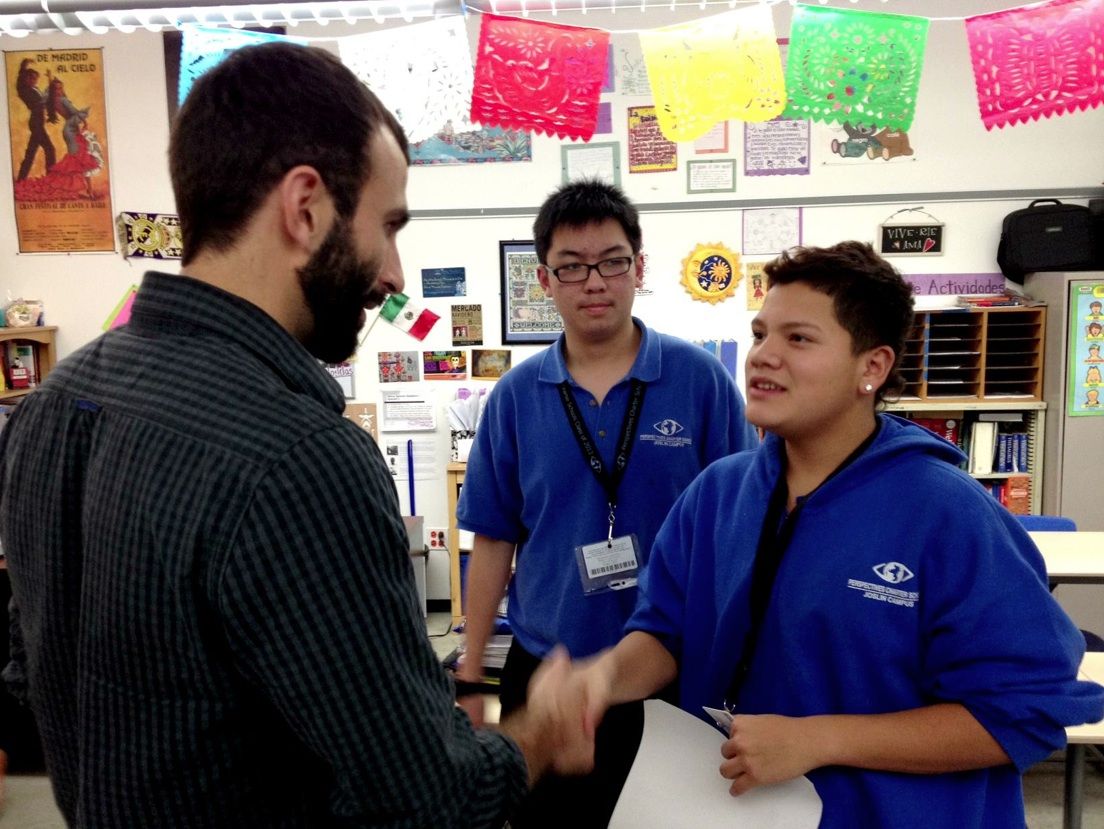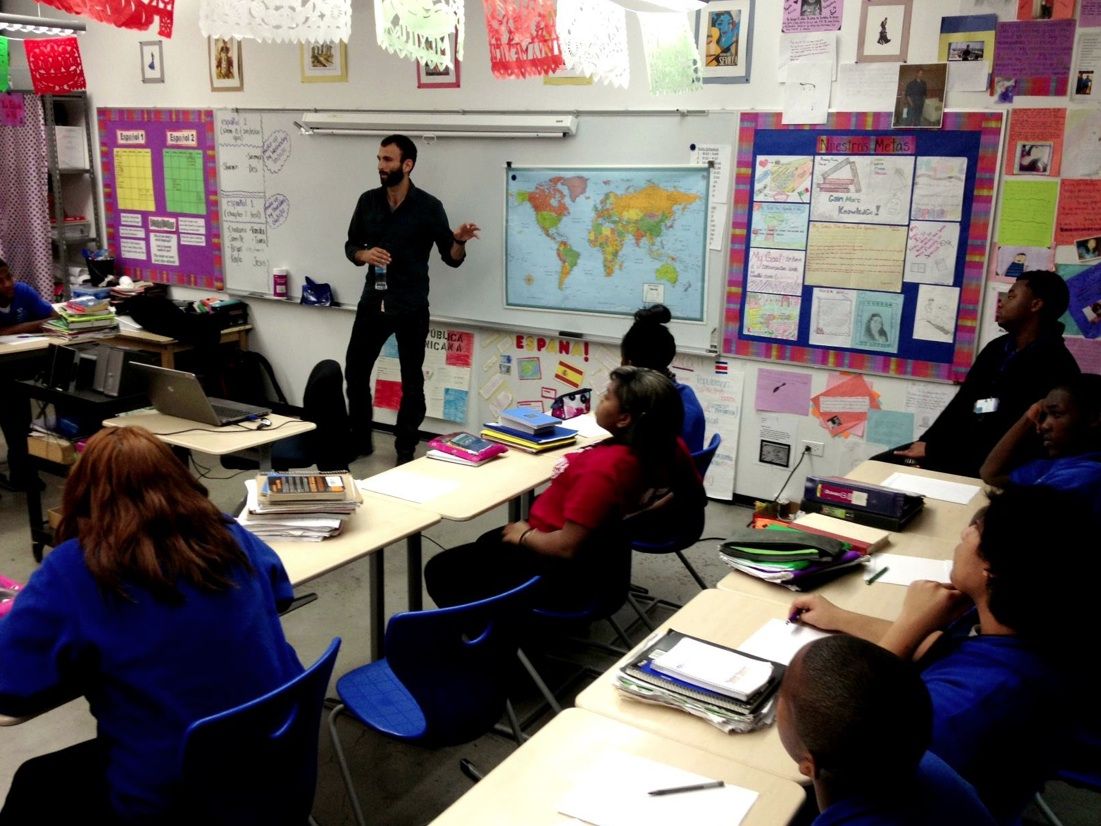Veteran journalist Jason Motlagh has reported from more than 35 countries and his work has been featured in dozens of media outlets around the world. Yet it is engaging with young learners that affirms for him the importance of reporting on critical global issues.
"When you're out in the field reporting for long stretches, often at great risk, there are times when you wonder who if anyone is listening. At best, the feedback is virtual -- on blogs and in emails," wrote Jason. "Sharing our work directly with students is a shot in the arm: it reminds us that there's still an audience out there that's ready to listen and learn about global affairs. If the future of journalism depends on finding new, creative ways of engaging young people, it starts by having a conversation."
Jason had 18 such conversations with over 1,000 middle and high school students in Philadelphia and Chicago during a busy week of school visits in December 2012.
At Central High School in Philadelphia, twelfth grade students in a global conflicts class had an in-depth discussion about the war in Afghanistan. The students had studied the history of the conflict in great detail and Jason's visit was an opportunity for the students to hear from someone who had spent significant time in the country. Jason talked about a host of issues, from how his gender, physical appearance and language ability impacted his reporting from the country, to the challenges and complexities in finding a peaceful end to the United States' second longest running war.
Middle school students at Robert Morris School in Philadelphia learned about the people working to prepare shrimp for export in Thailand, and asked Jason questions about conditions for children working in the industry. Educator Peg Monahan wrote of Jason's visit, "This experience has opened a window into a world that they would not have otherwise."
Tenth grade students at Joslin Perspectives Charter School in Chicago linked their study of the Mexican Revolution to Jason’s reporting on Burmese migrant workers in Thailand’s shrimp industry, finding repression, economic exploitation and human rights abuses common to both settings. Drawing on their understanding of the difficulties faced by undocumented workers in the United States, students also inquired about the risk of deportation for Burmese migrant workers, the presence of labor unions, and the responsibility of the government in finding a way for them to work safely and legally. For background on Burma and links to educational resources about the country, see "A Burma Primer."
At Francis W. Parker School in Chicago, Jason spoke with classes about three of his reporting projects. He talked about the palm oil industry with students studying historic cases of commodities extraction, shared his experience living and working in Afghanistan with students studying modern Islam, and introduced his project on the Thai shrimp industry with students studying labor exploitation and political organizing in Southeast Asia in the early twentieth century. Ninth grade students at Parker use the Pulitzer Center Gateways to complete the Global Crises Project, a research assignment in which students report on an international systemic crisis and develop a social action plan. The project description is attached for reference, courtesy of Kevin Conlon. For more materials designed to bring a global perspective to classrooms, see our unit maps, developed with Common Core standards in mind.
At the Center for International Studies at the University of Chicago, a Campus Consortium member, Jason hosted a lunch discussion to share his reporting on the social and environmental costs of palm oil extraction in Borneo. Students and faculty members talked with Jason about deforestation, the displacement of indigenous communities, and the growing community of stateless children born to undocumented migrant workers. The event was cosponsored by the Center for International Studies, the Program on the Global Environment, UChicago Careers in Journalism.
Jason wrapped up the week at the Chicago Public School District’s social science and service learning academy, where he gave a keynote address to audience of 150 educators. Pulitzer Center education director Mark Schulte also spoke with the group.
| Attachment | Size |
|---|---|
| 51.76 KB |





